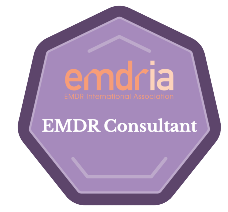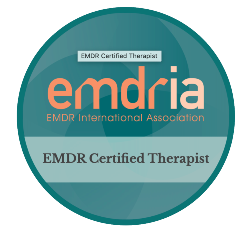What Are Signs Of An Anxiety Attack?
Whether you have struggled with anxiety attacks your whole life or are experiencing them for the first time, it’s important to understand the symptoms during an attack so you can better manage it. Unlike a panic attack, anxiety attacks build slowly over time, frequently in response to triggers. These triggers are usually events or circumstances that kick off the ‘anxiety’ response.
At their core, anxiety attacks are an inborn survival mechanism. They are an innate response to situations that feel uncertain or potentially pose a threat. It is not unusual for people to experience anxiety attacks at some point in their life, but for people experiencing them on a frequent or chronic basis, they can have a negative impact on their quality of life and can create a cycle that can feel difficult to break. The best way to keep your anxiety attacks from spiraling out of control is to learn to recognize the signs that an attack is coming on, as well as what triggers them, and if ongoing, to seek treatment.
Individuals often experience both physical and emotional signs warning them an anxiety attack is beginning. In this post, we’ll examine some of the most common symptoms.
Physical Symptoms
When you are faced with a situation or circumstance that feels unsafe or triggers your anxiety, your body may instinctively go on ‘high alert’. Your heart rate and blood pressure may change, and your body may be flooded by stress hormones such as cortisol.
- Dizziness
- Shortness of Breath
- Chest Pain or Pressure
- Cold Sweats
- Headaches
- Hot Flashes
- Auditory Changes
- Trembling or Shaking
- Nausea & Discomfort
- Sudden Need to Use the Bathroom
Some of these sensations may come on more or less rapidly than others, and with different levels of severity. It is always advisable to schedule a call with your physician initially to rule out any medical issues. Once you have ruled out any physical ailment, you may find that just having the knowledge that you are physically well may bring down the level of activation that is elicited by the anxiety onset.
Emotional Symptoms
In the same way that your body’s physical state changes during an anxiety attack, your emotional state changes as well. Common signs to look out for include:
- Sense of Helplessness
- Feelings of Unseen Danger
- Irritability
- Restlessness or a Desire to Escape
- Impending Sense of Doom
- Feelings of Detachment or Dissociation
- Difficulty Focusing
- Feeling Trapped or Threatened
All of these emotional symptoms are part of the natural survival mechanism that is designed to help all creatures survive dangerous or uncertain situations. Nevertheless, while this may be useful in certain circumstances, unwarranted feelings of danger can become impediments to healthy daily functioning.
Identifying Your Triggers
Another way you can recognize whether or not you’re experiencing an anxiety attack is to examine what the circumstances are when you experience symptoms such as those listed above. For many people, anxiety attacks are linked to deadlines at work or school, difficult social situations, marital conflict, financial hardship, or other environmental situations such as:
- Social Events
- High-Pressure Work Atmosphere
- School \ College Deadlines
- Financial Hardship
- Bullying \ Interpersonal Conflict
Anxiety attacks generally build up over time and can be triggered by any stressful situation. Each person has their own unique perspectives and different tolerances for stressors such as interpersonal conflict, deadlines, and the risk of failure or humiliation. A college exam that’s not concerning for one student might feel tremendously stressful for another.
Understanding what triggers you can be helpful in identifying an anxiety attack as it’s building, allowing you to implement some coping strategies to reduce the attack’s intensity.
Contributing Factors
There are a number of other factors which can contribute to an anxiety attack, some of which might surprise you. Drinking caffeine, skipping meals, eating too much sugar or processed foods and having trouble sleeping. These experiences can increase the likelihood or intense of an anxiety attack.
By tracking what is going on in your body, you may be able to learn to identify environmental factors that contribute to your attacks.
Treatment
Anxiety attacks can be treated effectively using a number of different types of therapy. There are helpful coping strategies that can be used as well, such as breathing exercises and mindfulness exercises. EMDR is often used to help release the brain from its ‘stress state’ and relieve the impact of past trauma. Cognitive Behavioral Therapy can also be useful in providing clients with the tools they need to process and clear an anxiety attack before it reaches a crisis point.
If you’re interested in learning more about how to recognize an anxiety attack and treat anxiety , don’t hesitate to contact our team for assistance. We specialize in anxiety treatment to help our clients manage their symptoms.






